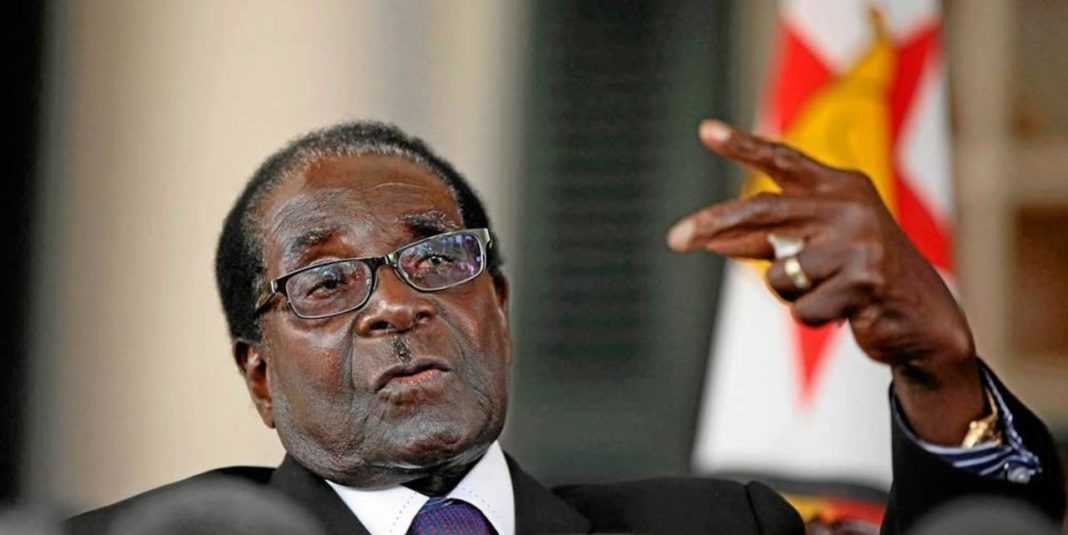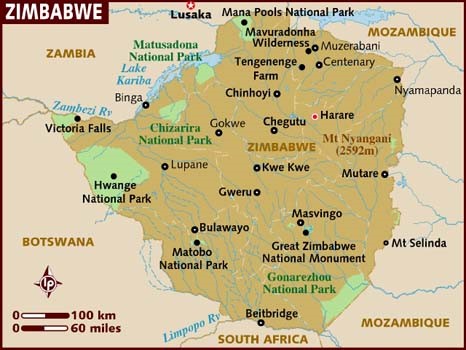Mugabe stripped from WHO
October 23, 2017 | Expert Insights

The World Health Organization has rescinded its the appointment of Zimbabwe's President Robert Mugabe as a goodwill ambassador. He had been in the position for just around a week’s time.
There was widespread outcry following his appointment.
Background
Robert Gabriel Mugabe is a Zimbabwean revolutionary and politician. He has been the President of Zimbabwe since 1987. Mugabe has been a key figure in the nation’s political landscape since the country got its independence from Britain in 1980. From 1980 to 1987, he led the nation as the Prime Minister. Prior to assuming the top leadership position in the country, he was the Chair of the Zimbabwe African National Union (ZANU) group from 1975 to 1980. Ideologically he is considered an African nationalist. He has identified as a Marxist-Leninist in the past, however has called himself a socialist since the 1990s.
Born in 1924, he became a prominent name in the nation during the 1970s through guerilla warfare. He even served time in prison between 1964 and 1974 for reportedly making anti-government statements.
Despite his initial popularity, Mugabe remains a deeply divisive figure in African politics. He is still hailed as a hero for fighting against imperialism and white minority rule. He has been derided as a dictator responsible for economic mismanagement, widespread corruption, anti-white racial discrimination, human rights abuses, suppression of political critics and crimes against humanity.
Since 2000, the nation has grappled with widespread impoverishment. This has largely been attributed to Mugabe’s policies. He had introduced a land reform program which resulted in the seizure of white-owned farms. This was re-distributed to landless black Zimbabweans. This resulted in sharp falls in production.
In 2002, Commonwealth suspended Zimbabwe after disputed presidential election. In 2008, Morgan Tsvangirai beats Mugabe in the subsequent Presidential election. However, due to violence towards and him and his supporters, he was forced to withdraw. Lack of healthcare is another endemic issue in Zimbabwe. Many hospitals in the country are said to lack even the basic necessities. US and EU have imposed sanctions on the country over perceived violation of human rights. In 2009, Mugabe's ruling party spent more than $250,000 on a lavish birthday party for the leader despite an ongoing food shortage and cholera outbreak in Zimbabwe.
His family has also been accused of leading a lavish lifestyle and are allegedly complicit in corruption.

Analysis
In October 2017, Robert Mugabe was appointed as a goodwill ambassador of the World Health Organization (WHO). The organization had roped him in to help tackle non-communicable diseases has attracted a chorus of criticism.
However, the appointment was immediately condemned by human rights organizations as well as members of various governments. "The government of Robert Mugabe has brutalized human rights activists, crushed democracy dissidents and turned the breadbasket of Africa -- and its health system -- into a basket case," said Hillel Neuer, executive director of UN Watch, which monitors the performance of world body.
A spokesperson for the British government noted, “Although Mugabe will not have an executive role, his appointment risks overshadowing the work undertaken globally by the WHO on non-communicable diseases."
WHO head Tedros Adhanom Ghebreyesus has since announced that the body has rescinded its appointment. Adhanom said that the body had to heed the concerns that were being expressed internationally. He noted, “Over the last few days, I have reflected on my appointment of H.E. President Robert Mugabe as WHO Goodwill Ambassador for Noncommunicable Diseases in Africa. As a result I have decided to rescind the appointment. I have listened carefully to all who have expressed their concerns, and heard the different issues that they have raised. I have also consulted with the Government of Zimbabwe and we have concluded that this decision is in the best interests of the World Health Organization.”
Goodwill ambassadors for WHO are public figures appointed to two-year terms by the director-general.
Mugabe has himself not commented publicly on the development. The nation’s Minister of Foreign Affairs Walter Mzembi said that although Zimbabwe respected the WHO's decision, "the global body is the biggest loser". He said, "The inordinate noise around the designation of the President [Mugabe] as WHO Global Ambassador for Africa does not assist the cause in the first place. If anything it is WHO that has benefited tremendously from its decision in nominating President Mugabe to lead the fight against NCDs through media amplification of WHO itself, and curiosity by the general public on what really are NCDs, by tagging the name Mugabe to the debate. On a name recognition scale, this name beats them all, but it is our business to protect its brand equity from unnecessary besmirching.”
Assessment
Our assessment is that this is a deeply embarrassing political development for Mugabe. It isn’t often that leaders of nations are publicly rebuked. It demonstrates that eventually the past will catch up. Mugabe, a revolutionary leader, is now linked to his nation’s failure. Global leaders are now being held to higher accountability. This fall from grace is similar to what happened to previous leaders such as Richard Nixon, Hosni Mubarak, the former Egyptian leader and France’s Dominique Strauss-Kahn.








Comments